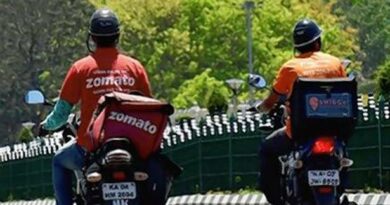Jio becomes 1st operator to bring mobile connectivity to Demchok, offers 4G services
Jamyang Tsering Namgyal, Member of Parliament from Leh, inaugurated Jio mobile tower in Demchok and dedicated 4G services to the people of the border village, Army, ITBA, and travellers.
Billionaire Mukesh Ambani’s Reliance Jio has become the first operator to bring mobile connectivity to Demchok in eastern Ladakh with the start of its 4G voice and data services in the border village.
Jamyang Tsering Namgyal, Member of Parliament from Leh, inaugurated Jio mobile tower in Demchok and dedicated 4G services to the people of the border village, Army, ITBA, and travellers.
After inaugurating the mobile tower at border village Chushul, he said, “It will surely strengthen border security as well as the rural economy of border villages.”
Tweeting about the event, he said that he dedicated “4G internet to the villagers, Army and tourists travelling Pangong-Chushul-Tsaga via Rizang La.”
Sitting at over 13,000 feet above sea level, Demchok serves as the last landmark on the Indian border with China to facilitate communication to Jawans posted at high altitudes and also local residents.
Besides Demchok, 4G services were also inaugurated at the border village of Chushul, Nyoma Tharuk and Durbuk in Ladakh.
In Ladakh, the Jio network has been connected via 3 fiber routes, Leh-Srinagar, Leh-Manali (Himachal Pradesh), and Leh-Gurez, to build redundancy. The Leh-Gurez route is expected to be live soon. Leh- Manali route is on Raman Amplifier technology which has been used for fiber connectivity on land for the first time.
Posting a video of snowclad terrain of the region, he tweeted, “Touring along Line of Actual Control (LAC) borders in Eastern Ladakh for last 3 days, driving from Chushul to Leh on snow-covered road enjoying the amazing landscape.”
“Inaugurated 5 @reliancejio Mobile Towers with 4G Internet at Demchok, Nyoma, Chushul, Tharuk & Durbuk. Jai Hind.”
He also expressed his thanks to Jio officials for the timely execution of the prestigious project at the border.
The beginning of Jio 4G services in Demchok is a boon for the community and tourism industry of the Union Territory. The launch of telecom services is expected to bring about a marked change in the lives of border inhabitants in the sectors of health and education.
The 4G Services are not only going to impact the social status of the residents but will also be a turning point in the economic development of the region as it will facilitate in creating earning opportunities for local youth and businessmen.
Various remote villages of blocks like Zanskar, Sankoo, Taifsuru, Shargole, Nubra, Khalsi, Kharu, Drass, Panamic have already been covered by the Jio network earlier and the company is in the process of expanding Jio network coverage further to many more remote villages of Ladakh.
As on date, 168 Jio towers are functional in the Ladakh region, according to sources close to the company.
Jio has to install 62 towers under USOF of which 44 are already functional. Installation of these towers can be done in a window of 6-7 months available for construction in a year due to harsh weather and tough terrain.
Jio is the only private network operator to provide services in the Zanskar region and Siachen base camps and has provided fiber media connectivity via Gurez and Manali along with the existing Kashmir-Leh route.
On the Leh-Manali route, it is working on Raman Amplifier technology which has been used for, first time, for fiber connectivity on land (to extend fiber stretch without power amplification – 242 km).
In case of fiber cut on any one route, it has 2 more protection, they said that adding in case of two simultaneous fibre cuts it still has one route up and running.
In comparison to other telecom operators, the Jio network is less prone to network blackout due to robust fibre connectivity.
The firm is delivering end to end connectivity in spite of extremely tough conditions in terms of low oxygen levels, sub-zero temperatures and minimum communication along the route.
“Driving through the frozen roads of Khardungla, many of the team members had to be oxygenated as material and implementation team movement had to continue,” they said.
Also, a large number of sites are deployed specifically to provide mobile connectivity to Army personnel in a geographically remote location where previously satellite phone was the only option to connect with their families.
Source: Read Full Article

